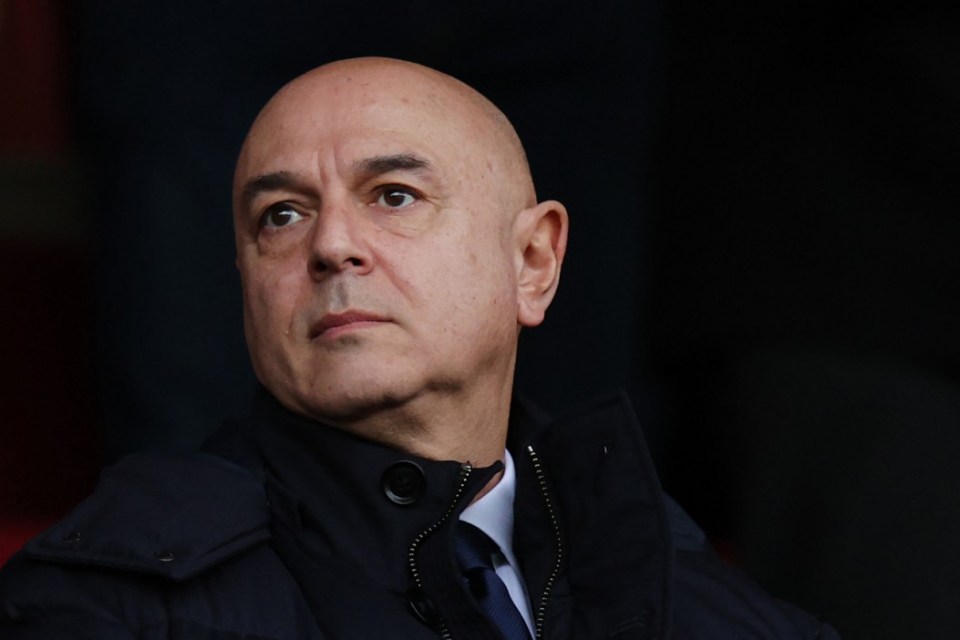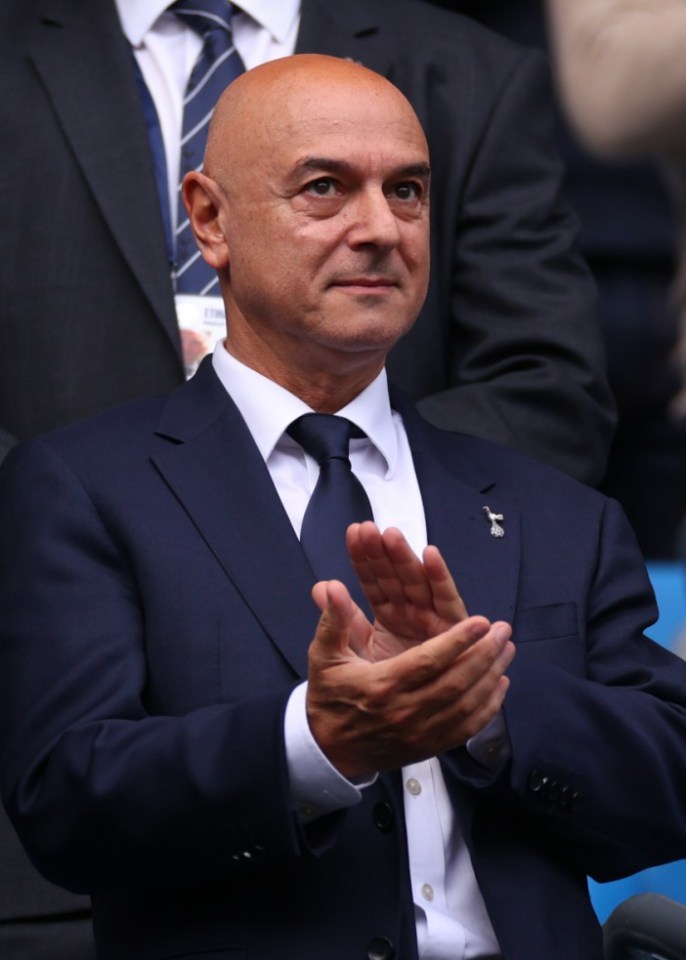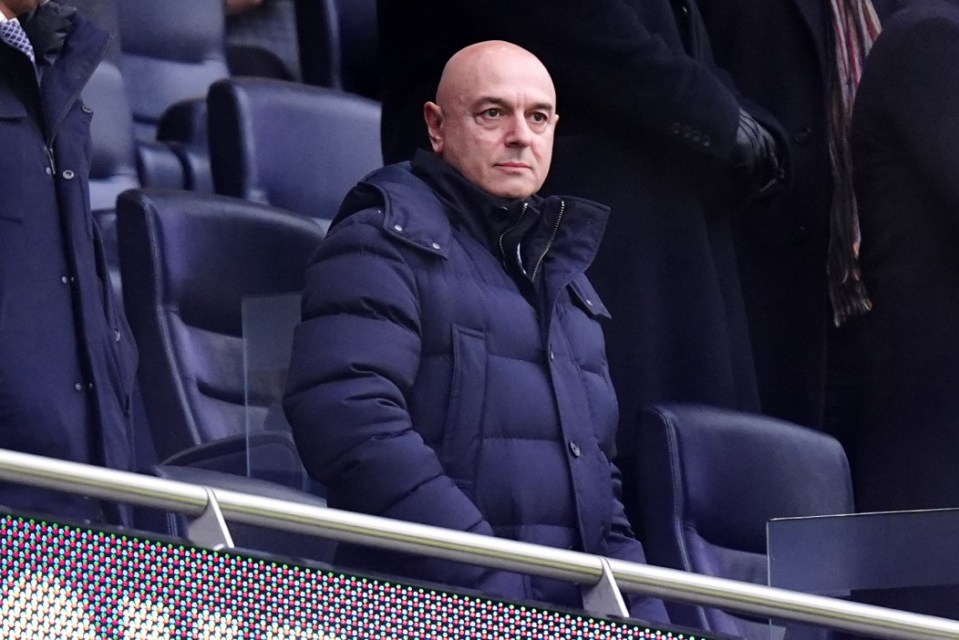SO what did Daniel Levy ever do for Tottenham Hotspur?
Apart from giving them the world’s greatest football stadium, a world-class training ground, regular Champions League football, a first ever European Cup Final appearance and this year’s Europa League triumph?
For a quarter of a century – the longest reign of any Premier League chairman – Levy has sat, largely silently, in the Spurs directors box with an air of the Austin Powers villain Dr Evil about him.
For much of that time, Levy has been lambasted, vilified, bombarded with abuse and targeted by protests – although a salary which ended up at £3.7million per year would have helped to ease any hurt.
Finally, it’s time for the anti-Levy mob to put away their placards, because the biggest pantomime villain in the world’s greatest league has finally left the building.
There ought to have been a lot to like about Levy as a football club chairman.
A local man and a genuine Spurs fan, in an era of remote foreign ownership, a ball-busting negotiator who refused to bow to bigger clubs, and a visionary who planned and built a sustainable long-term future.
Yet while a quiet, but sizeable, minority of Spurs fans were sympathetic towards Levy, there is no getting away from the fact that the vocal majority loathed him.
Spurs went through 15 permanent managers, as well as several Ryan Mason interludes, under Levy’s watch.
And they suffered 17 years without silverware between the only two trophies of his reign.
CASINO SPECIAL – BEST CASINO BONUSES FROM £10 DEPOSITS
Those were the 2008 League Cup under Juande Ramos, who was sacked seven months later, and this year’s Europa League under Ange Postecoglou who was sacked a fortnight later.
That Postecoglou decision showcased perfectly how Levy never shied away from making unpopular calls.
And attempting to balance the achievement of winning a European trophy with a worst-ever Premier League finish of 17th place was a hellish one – and the last major call of his lengthy reign.
That historic victory in Bilbao was Tottenham’s fourth of last season against Manchester United.
Before the previous one – a 1-0 home success in the Premier League – Levy faced one of the largest mass demonstrations from supporters, urging him to go.
His decision to sign up for the breakaway European Super League scheme in 2021 had sparked similarly vociferous opposition from fans.
There were plenty of low points spanning more than 24 years as the face of owners ENIC – from Sol Campbell’s defection to Arsenal way back in 2001 right through to the Gunners’ hijacking of Eberechi Eze this summer.
Yet Levy undoubtedly improved Spurs, despite the arrival of so many big-spending rivals in English football.
Shaking things up
Before he arrived as a fresh-faced 39-year-old former suit salesman, Spurs had finished outside of the top ten on seven occasions in the previous decade.
Now, Spurs have qualified for Europe in 18 out of the last 20 seasons – reaching the 2019 Champions League Final under Mauricio Pochettino, having also impressed on Europe’s grandest stage under Harry Redknapp.
It was Redknapp’s Spurs who broke up a sustained period of dominance by a “big four” of Man Utd, Liverpool, Arsenal and Chelsea – despite a budget significantly smaller than any of those rivals.
Yet Levy’s refusal to communicate allowed him to be caricatured as ruthless, greedy and unfeeling.
Sir Alex Ferguson once famously described negotiating with Levy as “more painful than a trip to the dentist” – although, during these root-canal sessions, the United boss did manage to prise away Dimitar Berbatov and Michael Carrick at their peaks.
Levy was hands-on in his transfer dealings. For many years, he was infamous for his eleventh-hour signings and, before his abrupt departure, there would be one final piece of deadline-day business – a loan move for Paris Saint-Germain’s Randal Kolo Muani.
Who succeeds Levy?
Along the way, Levy did spend a lot of money on a fair amount of dross – including £55m on Tanguy Ndombele and the vast majority of the cash spent on a trolley dash in the wake of Gareth Bale’s world-record sale to Real Madrid in 2013.
But Tottenham’s ambition, and investment levels, were often far greater than Levy was ever credited for.
Levy will effectively hand over the reins to chief executive officer Vinai Venkatesham, the former Arsenal suit who arrived in April.
The departure of Levy’s long-term right-hand woman Donna Cullen in June was perhaps an indication that his days at the helm were numbered.
Whether his exit will smooth the way for a takeover – American and Qatari investors have long been circling – remains to be seen.
But as the curtain falls on his reign, the good should outweigh the bad.
As Levy said, in a summer interview with Gary Neville, “When I’m not here, I’m sure I’ll get the credit.”















